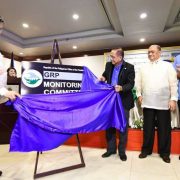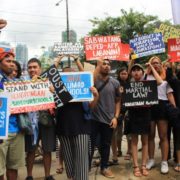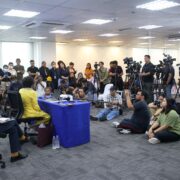New travel guidelines violate rights, OFWs say
Migrant Filipinos are opposing the government’s new travel guidelines, saying the additional requirements violate the people’s right to travel.
In a statement, Migrante International (MI) said the new policy imposed by the Inter-Agency Council Against Trafficking (IACAT) requiring Filipinos going abroad to present more documents to immigration officials is misguided and should be junked immediately.
The policy adds to the already considerable state exactions that have been imposed on overseas Filipino workers (OFWs) and all migrant Filipinos, MI chairperson Joanna Concepcion said in a statement.
In its announcement of the new policy, the IACAT said that it does not intend “to encroach upon the fundamental right to travel” but to combat human trafficking.
IACAT explained that it has revised the departure protocols to “combat the grave menace of human trafficking.”
But Concepcion said the imposition of so many documentary requirements for travel violates the Filipinos’ right to travel and may increase the element of arbitrariness in immigration officials’ decisions.
“Intention is one thing and effect is another,” Concepcion said, adding “the fight against human trafficking does not justify this violation.”
READ: ‘Yearbook requirement’ at Manila airport? Filipino tourist wears full graduation attire instead
MI said that the IACAT did not seem to take into account that the Philippines is a top labor exporter and the new policy is sure to fail a rights-based examination.
It added that the IACAT came up with the policy unilaterally as no consultation with the vibrant and vocal community of migrant organizations and civil society organizations has been reported.
“We seriously doubt the IACAT’s optimism that the new policy will cause a palpable reduction, if not outright elimination, of human trafficking incidents,” Concepcion said.
“The new policy puts the burden of fighting human trafficking on individual Filipinos, not on the government or human traffickers and their syndicates,” she added.
Concepcion said the IACT should concentrate on swift government action on human trafficking cases, such as the student visa scam for travel to Canada, the US, New Zealand and Australia.
“The new policy leaves unaddressed the material conditions enabling human trafficking — widespread joblessness, landlessness and poverty in the Philippines,” Concepcion said.
“In fact, the Bongbong Marcos regime has intensified the government’s labor export program and has done nothing to provide immediate relief — from soaring prices of basic goods and services for example — to Filipinos, let alone create the foundations for job creation at home,” the OFW leader added. # (Raymund B. Villanueva)







